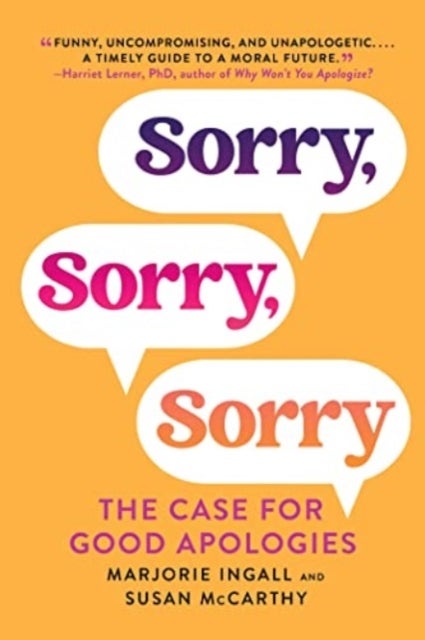
Sorry, Sorry, Sorry av Marjorie Ingall, Susan McCarthy
212,-
<B>“I’m sorry, but <I>Sorry, Sorry, Sorry </I>means that you no longer have an excuse for delivering anything other than a pitch-perfect apology. Ingall and McCarthy break down thorny questions…with grace and humor.”</B>—<B>Peggy Orenstein, bestselling author of <I>Boys & Sex</I>, <I>Girls & Sex</I>, and <I>Cinderella Ate My Daughter</I></B><BR><BR>It’s a truth universally acknowledged that terrible apologies are the worst<I>. </I>We’ve all been on the receiving end, and oh, how they make us seethe. Horrible public apologies—excuse-laden, victim blame-y, weaselly statements—often go viral instantaneously, whether they’re from a celebrity, a politician, or a blogger. We all recognize bad apologies when we hear them. So why is it so hard to apologize well? How can we do better? How could <I>they</I> do better?<BR><BR>Marjorie Ingall and Susan McCarthy show us the way. Drawing on a deep well of research in psychology, sociology,








